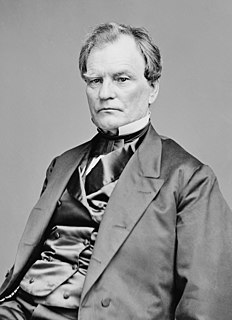A Quote by Bernard Baruch
We are living in a highly organized state of socialism. The state is all; the individual is of importance only as he contributes to the welfare of the state. His property is only his as the state does not need it. He must hold his life and his possessions at the call of the state.
Related Quotes
The State, of course, is absolutely indispensable to the preservation of law and order, and the promotion of peace and social cooperation. What is unnecessary and evil, what abridges the liberty and threatens the true welfare of the individual, is the State that has usurped excessive powers and grown beyond its legitimate function - the super-State, the socialist State, the redistributive State, in brief, the ironically misnamed 'Welfare State.'
I want everyone to keep the property that he has acquired for himself according to the principle: benefit to the community precedes benefit to the individual. But the state should retain supervision and each property owner should consider himself appointed by the state. It is his duty not to use his property against the interests of others among his own people. This is the crucial matter. The Third Reich will always retain its right to control the owners of property.
It requires twenty years for a man to rise from the vegetable state in which he is within his mother's womb, and from the pure animal state which is the lot of his early childhood, to the state when the maturity of reason begins to appear. It has required thirty centuries to learn a little about his structure. It would need eternity to learn something about his soul. It takes an instant to kill him.
Some things the legislator must find ready to his hand in a state, others he must provide. And therefore we can only say: May our state be constituted in such a manner as to be blessed with the goods of which fortune disposes (for we acknowledge her power): whereas virtue and goodness in the state are not a matter of chance but the result of knowledge and purpose. A city can be virtuous only when the citizens who have a share in the government are virtuous, and in our state all the citizens share in the government.
Violent resistance against the power of the state is the last resort of the minority in its effort to break loose from the oppression of the majority. ... The citizen must not be so narrowly circumscribed in his activities that, if he thinks differently from those in power, his only choice is either to perish or to destroy the machinery of state.
The welfare state corrupts family life. Even Democrats have acknowledged the destructive consequences of the welfare state on the underclass. It has rendered vast numbers of male unnecessary to females, who have looked to the state to support them and their children (and the more children, the more state support) rather than to husbands. In effect, these women took the state as their husband.
Civil rights, as we may remember, are reducible to three primary heads; the right of personal security; the right of personal liberty; and the right of private property. In a state of slavery, the two last are wholly abolished, the person of the slave being at the absolute disposal of his master; and property, what he is incapable, in that state, either of acquiring, or holding, in his own use. Hence, it will appear how perfectly irreconcilable a state of slavery is to the principles of a democracy, which form the basis and foundation of our government.


































